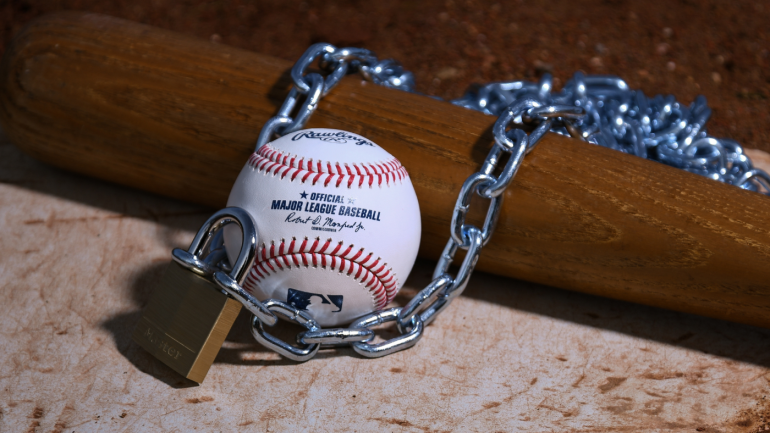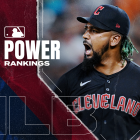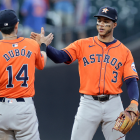
On Monday, MLB and the MLB Players Association held their most substantive bargaining session of the lockout, with the players withdrawing their proposal for earlier entry into free agency, among other things. The two sides will meet again Tuesday and meeting on back-to-back days qualifies as progress, though they remain far apart on many issues.
According to multiple reports, including The Athletic's Evan Drellich, MLB deputy commissioner Dan Halem informed the MLBPA the league is willing to lose regular season games over several key outstanding items during Monday's meeting. Here are a few details from Drellich:
Some on the players' side indeed thought it was notable that Halem would verbalize the possibility of missing games, that it did amount to a threat, while the commissioner's office disagreed.
...
Glen Caplin, a former political operative who serves as MLB's spokesperson for collective bargaining, wrote in a statement that The Athletic's "reporting about comments from our negotiating session is mischaracterized and not a fair representation of the discussion."
MLB's owners initiated the lockout and it wouldn't have teeth if the league weren't willing to sacrifice games. The fact MLB waited six weeks to make its first core economics proposal after locking the players out makes it pretty clear they're ready to drag this out. Saying they're willing to miss games is MLB saying what we already knew more than issuing a threat.

CBS Sports HQ Newsletter
Your Ultimate Guide to Every Day in Sports
We bring sports news that matters to your inbox, to help you stay informed and get a winning edge.
Thanks for signing up!
Keep an eye on your inbox.
Sorry!
There was an error processing your subscription.
Sacrificing regular season games at a time when revenues are at an all-time high and the league's new 10-figure national television contracts are set to kick in would be deeply stupid and do incalculable long-term damage to the sport. Monday's meeting seemingly confirmed MLB's owners are ready to do exactly that to ensure they keep as much of the pie as possible.
Former Marlins executive David Samson discussed the latest MLB negotiations on Tuesday's Nothing Personal with David Samson. Listen below:
Missing regular season games would cost everyone paychecks. Players are not paid during spring training and spring games don't generate enough revenue to really move the needle for clubs. Players are paid during the regular season and owners make the most money during the regular season. Once regular season games are lost, everyone's wallet takes a hit.
MLB and the MLBPA will meet again Tuesday and the league is expected to submit a counterproposal to the union's latest offerings, though one not as comprehensive as the proposal made two weeks ago. Pitchers and catchers are scheduled to report in roughly three weeks. For spring training to start on time, the two sides will need to reach a deal within a week or so.


















